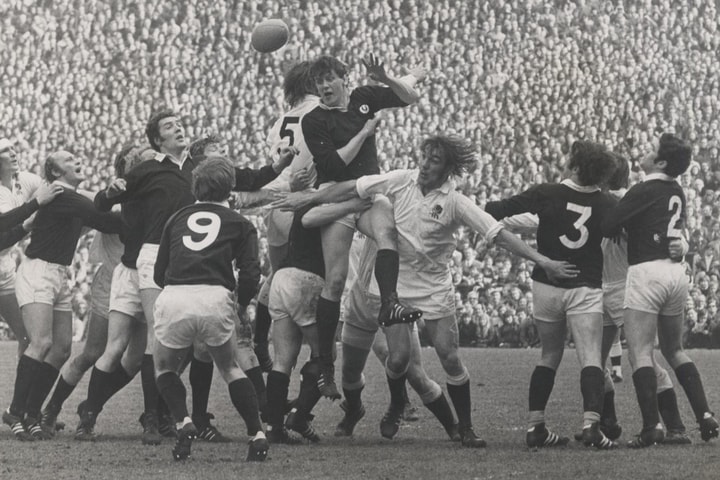
05 November 2025

The inaugural Rugby World Cup that took place in New Zealand and Australia in 1987 started a competition that has since grown into the third largest sporting event in the world. But it was not the first international rugby tournament. The 6 Nations Championship can trace its roots right the way back to the very first international rugby football fixture, between England and Scotland in 1871, and is therefore irrefutably the world's oldest international football contest of any code. Rugby first featured at the Olympics in 1900. Initially club and county sides were nominated to represent their country. In 1908 Great Britain was represented by Cornwall, the champion county at the time. The United States were the surprise winners of both the 1920 and 1924 Olympic rugby competitions. Since the sport has not featured in a summer Olympic games since the US remain the reigning XV-a-side champions.
1920 USA Olympic side
Neither of these tournaments can claim to be a truly representative global tournament in the way that the Rugby World Cup is, however there is one competition that can. The King's Cup was held in the aftermath of the First World War and involved rugby teams from Europe, America, Africa and Australasia. The following narrative is an extract from our Lest We Forget: Rugby and the First World War special exhibition:
Hostilities may have finally ceased with the signing of the Armistice on the 11th of November 1918 but the naval blockade of Germany was maintained until the signing of the Treaty of Versailles on the 28th of June 1919. Then began the slow process of demobilisation as thousands of men from Britain, and her Commonwealth allies were gradually returned home.
Throughout the War rugby and other team-sports had been used as a way of keeping the men occupied and fit during their long months behind the front-lines. In early 1919 rugby administrators decided to make use of the large numbers of overseas men by arranging a one-off series of matches at Twickenham and other venues around the United Kingdom.
A round-robin format was approved between six teams who would contest the 'Inter-Services and Dominions Rugby Championship'. The six teams were the British Army, the New Zealand Army, the Australian Imperial Forces, the South African Forces, the Canadian Expeditionary Forces and the Royal Air Force.
The British Army won all of their games but lost to New Zealand, who looked set for a clean sweep until they were defeated by Australia. The Australians were knocked out of contention by a defeat to the Royal Air Force, which left the British Army and New Zealand joint top of the table.
A decider was arranged and New Zealand defeated the British Army 9-3 at Twickenham. Three days later they defeated the French Army at the same ground before receiving the King's Cup from King George V.
It would be many years before football and rugby world cups would become commonplace but such was the multinational nature of this tournament that it can lay justifiable claim to having been the first.